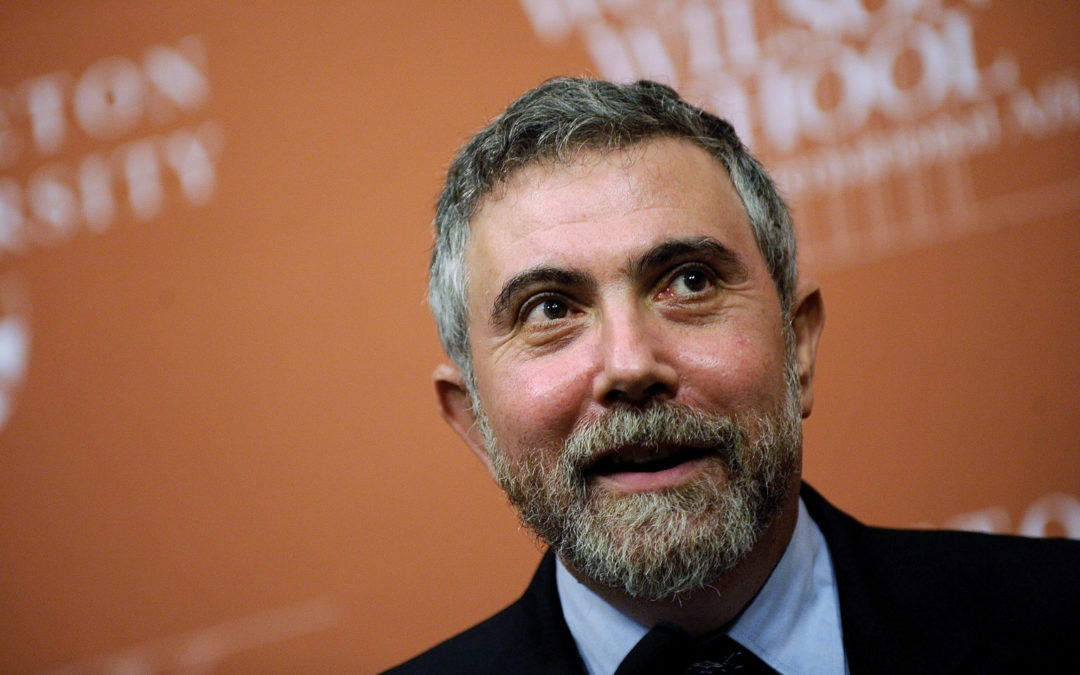A health economist acquaintance of mine likes to joke that Paul Krugman is the first economist in history to receive the Nobel Prize posthumously. Since the award is given only to living recipients, his point is that Mr. Krugman’s apparent second incarnation as New York Times columnist and self-professed liberal-with-a-conscience shows no evidence of the intellectual rigor that enrobed him on the Stockholm stage. Even the Times’ own former ombudsman has lamented Mr. Krugman’s “disturbing habit of shaping, slicing and selectively citing numbers in a fashion that pleases his acolytes but leaves him open to substantive assaults.”
Mr. Krugman continued to prove this point in a recent Times column that purports to explain “Why Markets Can’t Cure Healthcare.” In it, he leans heavily on a 1963 paper by Kenneth Arrow (another Nobel laureate) entitled, “Uncertainty and the Welfare Economics of Medical Care.” Mr. Krugman said this paper “demonstrated—decisively, I and many others believe—that health care can’t be marketed like bread or TVs,” and that markets cannot be the answer to our health care problems.
How odd that he could be so easily and immutably satisfied by an article that Mr. Arrow himself took pains to note was only “exploratory and tentative,” and that, indeed, contains a number of speculations and assumptions that have not withstood the test of time. Yet, the Arrow paper does offer insights into why markets that provide us with cheap, high-quality food and clothes haven’t done so with another essential economic good—medical care.
Mr. Arrow correctly identified two primary culprits: (1) the lack of adequate consumer information on how to choose appropriate medical services, and (2) a market failure that prevents insurers from selling health insurance to everyone wanting to buy it. Contrary to Mr. Krugman’s conclusion, however, Mr. Arrow wisely did not claim that efficient insurance and medical care markets are impossible—only that none have arisen and that there are barriers to their doing so.
One of Mr. Krugman’s more absurd claims is that private insurers are “socially destructive,” because they “try to deny as many claims as possible” and incur “much higher administrative costs than single-payer systems.” He apparently missed Mr. Arrow’s observation that the “case for insurance policies of all sorts is overwhelming.” In fact, private insurers are far more efficient than government programs, because they strike a much better balance between incurring higher administrative costs on the one hand and minimizing the payment of inappropriate claims on the other. Indeed, gross claims overpayment has landed the Medicare program on GAO’s list of government programs “at high risk for fraud, waste, abuse, and mismanagement” every year since 1990. When we add this waste to the government’s full Medicare administrative cost burden, we find that the government spends a far higher proportion of its resources on administration and waste than does the private insurance industry.
Mr. Krugman is downright silly with his claim that “Consumer choice is nonsense when it comes to health care.” He argues from the disjointed premise that, since insurance pays most of the bills, “someone other than the patient ends up making decisions about what to buy.” Huh? He’s apparently confusing the function of insurers to pay medical bills with the completely different problem identified by Mr. Arrow: the paucity of usable consumer information for determining which medical providers are the best and which of those offer the lowest prices.
Mr. Krugman claims that consumers can never be informed buyers, because medical care is “complicated” and not subject to “experience or comparison shopping.” Yet consumers daily buy all manner of complicated products and services without having any idea of how they work or any prior experience with their vendors—as with computers, auto repair, home electronics, electrician services, investment products, telecommunications services, over-the-counter drugs, and LASIK vision-correction surgery. There is nothing in the practice of medicine (or insurance) that inherently forbids the creation and dissemination of information that consumers need for making appropriate choices. Modern information technology (unavailable in Mr. Arrow’s time) renders this a tractable, even trivial problem.
Mr. Arrow accurately identified the existence of health insurance market failure, but did not pinpoint its cause: a phenomenon known as “adverse selection” that prevents insurers from profitably enrolling everyone who would like to buy insurance. Mr. Krugman has previously written that he would cure the problem with a government single-payer program, thus abandoning insurance markets altogether. This is more or less consistent with one of Mr. Arrow’s observations that, “when the market fails to achieve an optimal state, society will, to some extent at least, recognize the gap, and nonmarket social institutions will arise attempting to bridge it.”
This is exactly what the federal government did shortly after the 1963 publication of Mr. Arrow’s paper with its passage of Medicare (for the aged and disabled) and Medicaid (for many of the poor). Apparently, Mr. Krugman missed Mr. Arrow’s additional insight that such “actions which on their face achieve a desirable goal may have less obvious consequences, particularly over time, which more than offset the original gains” (emphasis mine). This was a prescient description of where we are now with an essentially bankrupt Medicare and with Medicaid heading in that direction. There’s no reason to expect a single payer construct to perform any better.
Both Messrs. Krugman and Arrow fail to consider an alternative to government insurance: regulatory reforms that correct the insurance market failure and allow an efficient insurance (and medical care) market to emerge. Then, vigorously competing private insurers would have an opportunity to profit by enrolling everyone wanting to buy their products. While the political barriers to creating something like this are daunting, the financial, behavioral, and actuarial ones are not. Such a system—which I describe as the American Choice Health Plan in my book Cured!—will allow the resulting markets to deliver universal insurance access, much lower medical costs, greatly improved medical quality, and an end to provider shortages. The two proper roles of government in a market-based system would be those of (1) regulatory referee and (2) safety-net of last resort to provide direct financial aid to those otherwise unable to participate.
It’s too bad that an economist with Mr. Krugman’s considerable professional chops failed to view Mr. Arrow’s paper as an itemization of challenges to be overcome by market-enabling social institutions rather than the market-preventing ones he favors. Then perhaps he could have helped identify the conditions necessary for health insurance and medical care markets to function and to provide high-quality, affordable medical care to everyone. Instead, he seems to have viewed Mr. Arrow’s paper as a sort of Rorschach inkblot onto which he could project his own conscience-driven biases and conclusions.
Ultimately, Mr. Krugman presents the rather sad spectacle of a once-great economist reduced to publicly spouting apocryphal assertions and venting his progressive conscience. There is more than a little irony here. In a 2007 article entitled “Who Was Milton Friedman?”, Mr. Krugman had this to say about the late Nobel laureate:
I regard him as a great economist and a great man… But there’s an important difference between the rigor of his work as a professional economist and the looser, sometimes questionable logic of his pronouncements as a public intellectual. While (his) theoretical work is universally admired by professional economists, there’s much more ambivalence about his policy pronouncements and especially his popularizing. And it must be said that there were some serious questions about his intellectual honesty when he was speaking to the mass public.
A fitting obituary by pundit Paul Krugman for the late economist, Paul Krugman.

